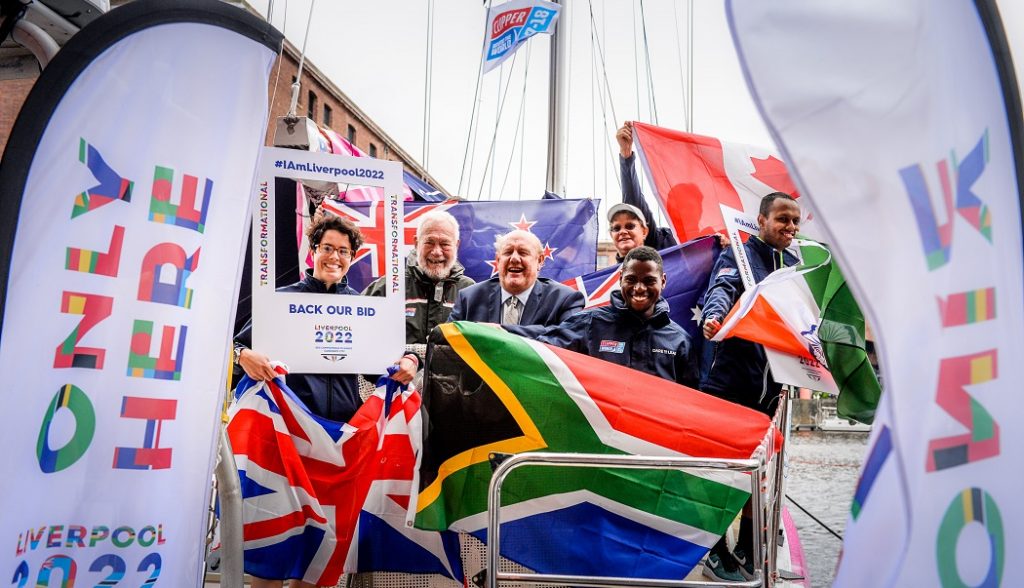Liverpool 2022 Commonwealth Games could bring £1bn boost to UK economy
August 31, 2017
A study has today revealed that hosting the 2022 Commonwealth Games in Liverpool and Manchester could deliver an economic boost to the region and wider UK economy of around £1 billion*.
The study, conducted by Deloitte, the business advisory firm supporting the Liverpool bid, estimates that £110 million could be generated pre-Games, largely through an increase in tourism due to Liverpool’s higher profile, and construction work in the city creating additional jobs for local people.
During the Games, the spending of visitors and those involved in the Games on hotels, hospitality, retail and travel, could generate £60 million in additional economic activity.
Significantly, legacy benefits for the city, mostly in the five years after the event, could account for £750 million, with a further £120 million shared across the UK. These would take the form of ‘place’ benefits, such as the earlier development of infrastructure and regeneration projects; ‘people’ benefits, for example healthier lives through sports participation and giving local people the skills to succeed; and ‘productivity’ benefits through increased tourism, exports and foreign investment.
DID YOU KNOW #Liverpool2022 could provide an economic boost of UK£1 billion?
Our economic impact report is LIVE: https://t.co/vXsByHBKuc pic.twitter.com/RZsZLzdObc
— Liverpool 2022 (@LiverpoolCG22) August 31, 2017
Liverpool 2022 Bid Chairman Brian Barwick said:
“This report shows what a successful bid could mean in hard terms for the city, region and the wider UK. Liverpool is a world-famous city, which people love to visit. Our Games plan, centred on Liverpool’s iconic waterfront, combines existing world class venues and stunning new facilities, such as a 50m pool in the city centre docks. It will attract visitors from around the world and provide a huge boost to the economy during the Games and for years to come.
“Liverpool has a rich industrial, cultural and sporting heritage and, as a globally-recognised city that has been on its own journey of reinvention, is the perfect place to showcase Britain in a post-Brexit era. And with Liverpool also being home to the UK’s official biennial International Business Festival which attracted over 42,000 day visitors and secured £600m of trade and investment in 2014 and 2016, the city is uniquely placed to promote UK Plc to the Commonwealth and beyond in 2022.”
#QBR2018 pic.twitter.com/F4ZomkhomE
— Liverpool 2022 (@LiverpoolCG22) August 19, 2017
Joe Anderson, Mayor of Liverpool said:
“This study shows that hosting the 2022 Commonwealth Games makes huge sense for the city, wider region and UK as a whole, delivering significant and lasting economic and social benefits.
“It will be truly transformational and will accelerate up to £1 billion of planned investments to transform the city’s world famous waterfront. Existing plans for Everton FC’s new stadium at Bramley-Moore Dock, 1,700 new homes in the north docks, the 10 Streets Stadium Gateway Development and Kings Dock destination development will all be accelerated, creating 12,000 new jobs and leaving a lasting legacy for communities across the city.”
Mark Lawrie, Partner, Deloitte, said:
“We have conducted a robust socio-economic analysis within Treasury guidelines and we are confident that the analysis confirms a very positive impact for Liverpool, Manchester and the UK.
“It is also important to recognise that there are a large number of ancillary investments planned that will enhance the city’s infrastructure enabling it to both act as a host for the Games, and as a driver of trade and tourism for the UK. The acceleration of these investments will have a significant impact on the regional economy and help to secure an enduring legacy benefit for the UK.
“We believe that when considered in its entirety this evidence makes a compelling endorsement of Liverpool’s ability to showcase the best of ‘UK Plc.’”
*Although total economic impacts at both Liverpool and UK level are in the region of £1bn, in-Games expenditure is higher in Liverpool due to visitor origin, and legacy impacts are higher in the UK due to spillover effects. These two effects broadly balance out.



